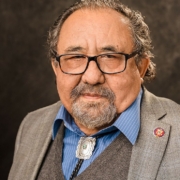Historic victory for human rights: DC mayor signs child marriage ban into law
Media Contact: Lisa McDonald, Vice President of Communications, 202-207-2829
Washington, DC – The National Consumers League (NCL) celebrates the successful passage of the Child Marriage Prohibition Amendment Act of 2024, following the 30-day congressional review period and the signing of the legislation by Mayor Muriel Bowser of Washington, DC. This landmark law, introduced by Councilmember Brooke Pinto, now officially prohibits marriage under the age of 18 in the District of Columbia, with no exceptions.
“This is a historic moment for DC and beyond—Mayor Bowser and Councilmember Pinto’s unwavering leadership sends a powerful message that child marriage will not be tolerated,” said Reid Maki, Director of Child Labor Advocacy at the National Consumers League and Coordinator of the Child Labor Coalition. “This law provides much-needed protection for vulnerable youth, preventing the devastating consequences of early marriage and ensuring young people have the opportunity to grow, thrive, and make their own life decisions.”
With this new law, Washington, DC, has joined the growing list of U.S. states and territories that have taken a strong stand against child marriage, protecting minors from the harmful and often devastating effects of early marriage. This victory represents a significant milestone in the global movement for the protection of girls’ and women’s human rights. The new law effectively ends child marriage in Washington, DC, following a troubling rise in cases in the city. This legislation represents a step in the right direction, reinforcing the importance of safeguarding children from the social, emotional, and health risks of early marriage.
###
About the National Consumers League (NCL)
The National Consumers League, founded in 1899, is America’s pioneer consumer organization. Our mission is to protect and promote social and economic justice for consumers and workers in the United States and abroad. For more information, visit www.nclnet.org.

























